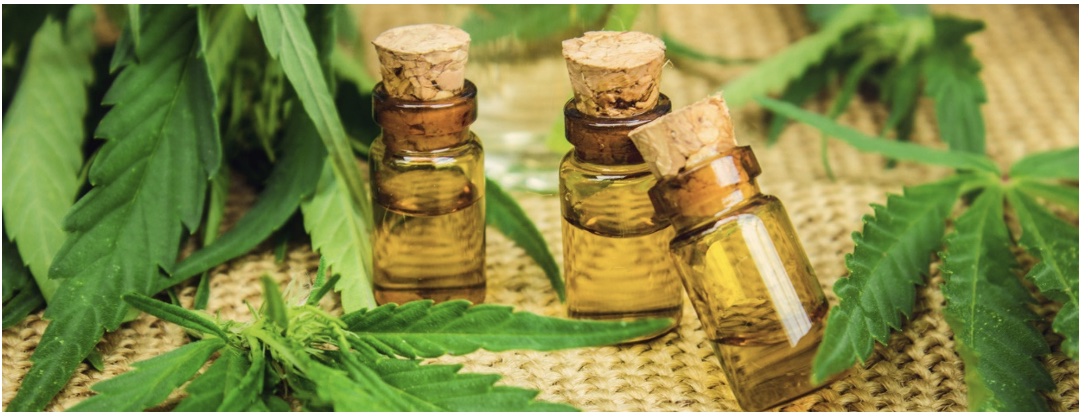 An up-and-coming hemp-cannabis derivative known as “Delta-8 THC” is floating in limbo somewhere between the realms of hemp-based cannabidiol (CBD) and marijuana — two markets that Flowhub pinned at a $61 billion valuation on for 2021.
An up-and-coming hemp-cannabis derivative known as “Delta-8 THC” is floating in limbo somewhere between the realms of hemp-based cannabidiol (CBD) and marijuana — two markets that Flowhub pinned at a $61 billion valuation on for 2021.
Producers of cannabis and hemp-based CBD are quickly turning their attention to this Delta-8 THC. Based on sales analytics published by New Frontier Data, this mildly euphoric isomer (basically a chemical “cousin”) of delta-9-THC generated $10 million worth of U.S. revenue in 2020, its first year of being available to consumers. In 2021, the cannabinoid’s popularity exploded, with sales estimated to have quadrupled over the prior year as more producers entered the space. 2022 is set up to show an even larger increase in growth as more and more people discover this exciting alternative to federally-illegal Delta-9.
This isomer of Delta-9 THC is more widely available across the United States, it harbors mood-boosting potential, and it possesses numerous medicinal properties. It’s no wonder that interest in it has surged as a hemp-based legal alternative to its cannabis cousin. In addition to its euphoric, stress-relieving, and insomnia-fighting effects, Delta-8-THC enables consumers to get “high” without feeling overly couch-locked. This effect plus the legality are driving a surge of new fans to the humble little cannabinoid. Now, what was a little-known niche cannabinoid just a year ago may become one of the hottest hemp consumer products of 2022.
Delta-8 THC is Rivaling Other Segments of the Market
Acknowledged as one of the fastest-evolving avenues of the “hemp-derived” market, Delta-8-THC began attracting a swath of national attention in the second half of 2020 – some two years after the passing of the 2018 Farm Bill.
Why is this relevant? Because the mood-affecting cannabinoid occurs naturally in small quantities in both the hemp and marijuana plants. For this reason, Delta-8 is typically made from CBD that has been derived from legal hemp plants.
While Delta-8 is a naturally occurring compound produced by the hemp plant, for commercial products Delta-8-THC is normally synthesized from CBD oil that has been extracted from legal hemp — a process that results in higher quantities of delta-8-THC being able to be produced from the plant with some simple lab chemistry.
Based on a report published by Brightfield Group, CBD products sold inside retail stores and vape shops are highly exposed to competition from Delta-8 THC.
“The competition CBD is feeling from delta-8 primarily impacts the cannabis and tobacco positioning for consumers who purchase through convenience stores and smoke or vape shops — these two channels together made up 7.3% of the CBD market in 2020. As a result, some CBD brands are feeling a significant squeeze, while others that don’t compete in these channels are largely unaffected,” said the Managing Director of Brightfield Group, Bethany Gomez.
That’s without even mentioning the threat that Delta-8 poses to the well-established Delta-9 market in states where recreational cannabis is already legalized. In comparison with traditional THC products, most Delta-8 consumers describe the effects as “milder” and more approachable to casual users than typical marijuana.
Conversely, other Delta-8 consumers claim that they are not as susceptible to the negative side effects associated with traditional THC products, including sedation, paranoia, anxiety, and similar negative experiences sometimes associated with Delta-9 THC usage. For new users and fans, Delta-8 products provide the perfect introduction and balance to the world of cannabis. Many people that wouldn’t dream of ingesting illegal THC or smoking a joint have flocked to hemp-based Delta-8 options as a welcome and relaxing alternative without the stigma of marijuana.
State laws are rapidly changing when it comes to cannabis in general, and Delta-8 is no exception. While some states have moved to clamp down on what they view as a Farm Bill “loophole” that made Delta-8 legal, others are going the opposite direction. The State of Louisiana recently announced that they were going to allow producers to add Delta-8 to food products, that Louisianans could then buy directly. With all the excitement over Delta-8 from consumers, it is just a matter of time before more states take a closer look and make their own regulations about if, and how, Delta-8 will be regulated in the future.
Advertising disclosure: We may receive compensation for some of the links in our stories. Thank you for supporting LA Weekly and our advertisers.
